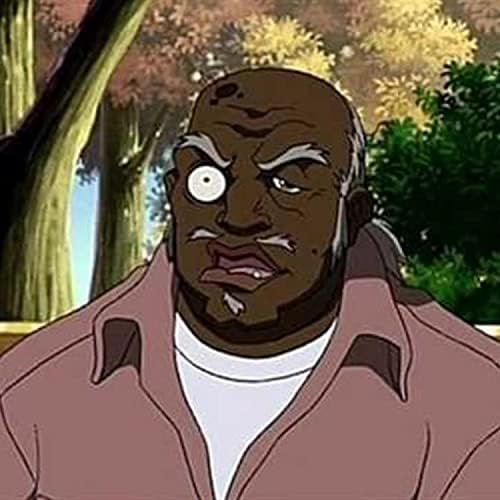Uncle Ruckus Basic Information

Uncle Ruckus as depicted in The Boondocks
Uncle Ruckus
💭Cartoon Chat with Uncle RuckusCreation Info
First Appearance
November 6, 2005 (in the pilot episode of The Boondocks)
Creator
Aaron McGruder
Series
The Boondocks
Copyright
Sony Pictures Television
Identity
Species
Human
Gender
Male
Age
Elderly (born July 4, 1939)
Birthday
July 4, 1939
Occupation
Various (holds multiple jobs)
Uncle Ruckus's Appearance
Physical Features
Height
Average
Body Type
Overweight
Color Scheme
Dark skin, typically wears simple clothing
Signature Style
Outfit
Varies, often seen in work uniforms or casual attire
Catchphrase
Uncle Ruckus, no relation
Accessories
Glass eye
Uncle Ruckus Character Background
Origin Story
Uncle Ruckus was born on July 4, 1939, and endured a turbulent childhood shaped by an abusive father, Mr. Ruckus, and a mother, Bunny Ruckus, who instilled in him a love for white culture while denigrating black identity. This upbringing profoundly influenced his self-hating and racist worldview.
Character Timeline
Debut in The Boondocks
First appeared in the pilot episode of The Boondocks, quickly establishing himself as a notable and controversial character.
The Uncle Ruckus Reality Show
Featured in a banned episode that explored his character and backstory in depth.
Uncle Ruckus's Personality
Personality Traits
- Self-hating
- Racist
- Crude
- Clumsy
- Short-tempered
- Delusional
- Obnoxious
Strengths
- Resilience
- Physical strength
- Martial arts skills
Weaknesses
- Delusional beliefs
- Lack of self-awareness
- Socially inept
Goals
- To be accepted by white society
- To promote his controversial views
Fears
- Black culture
- Being associated with his race
Uncle Ruckus's Gallery
Uncle Ruckus's Abilities
Special Powers
- None (human character)
Skills
- Martial arts
- Physical strength
- Various job-related skills
Uncle Ruckus's Relationships
Friends
Uncle Ruckus Awards & Recognition
- None specifically for the character
Uncle Ruckus Cultural Influence
Pop Culture Impact
Uncle Ruckus is a controversial figure in pop culture, often cited as an extreme example of satire on racism and self-hatred. His character has sparked discussions and debates about the portrayal of such views in media.
Social Impact
Through his exaggerated and offensive perspectives, Uncle Ruckus serves as a satirical lens, highlighting the absurdities of racism and the complexities of identity.
Uncle Ruckus's Theme Colors
More About Uncle Ruckus
Controversial Views
Uncle Ruckus is notorious for his extreme and offensive views, frequently expressing hatred toward black people and idolizing white culture. His character satirizes internalized racism and the impact of upbringing on belief systems.
Notable Quotes
- 'Don't trust them new n***as over there.'
- 'I have re-vitiligo, the opposite of what Michael Jackson had.'